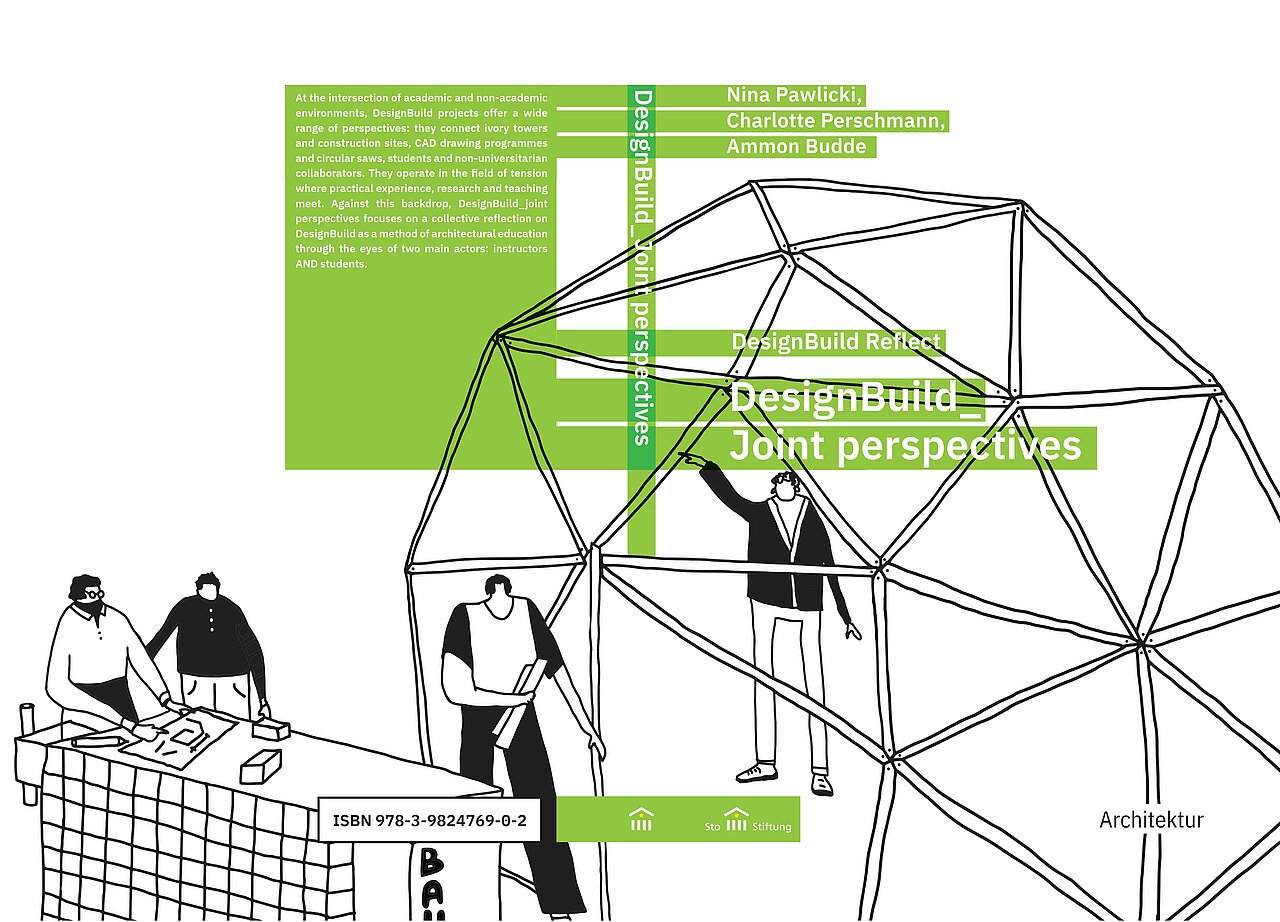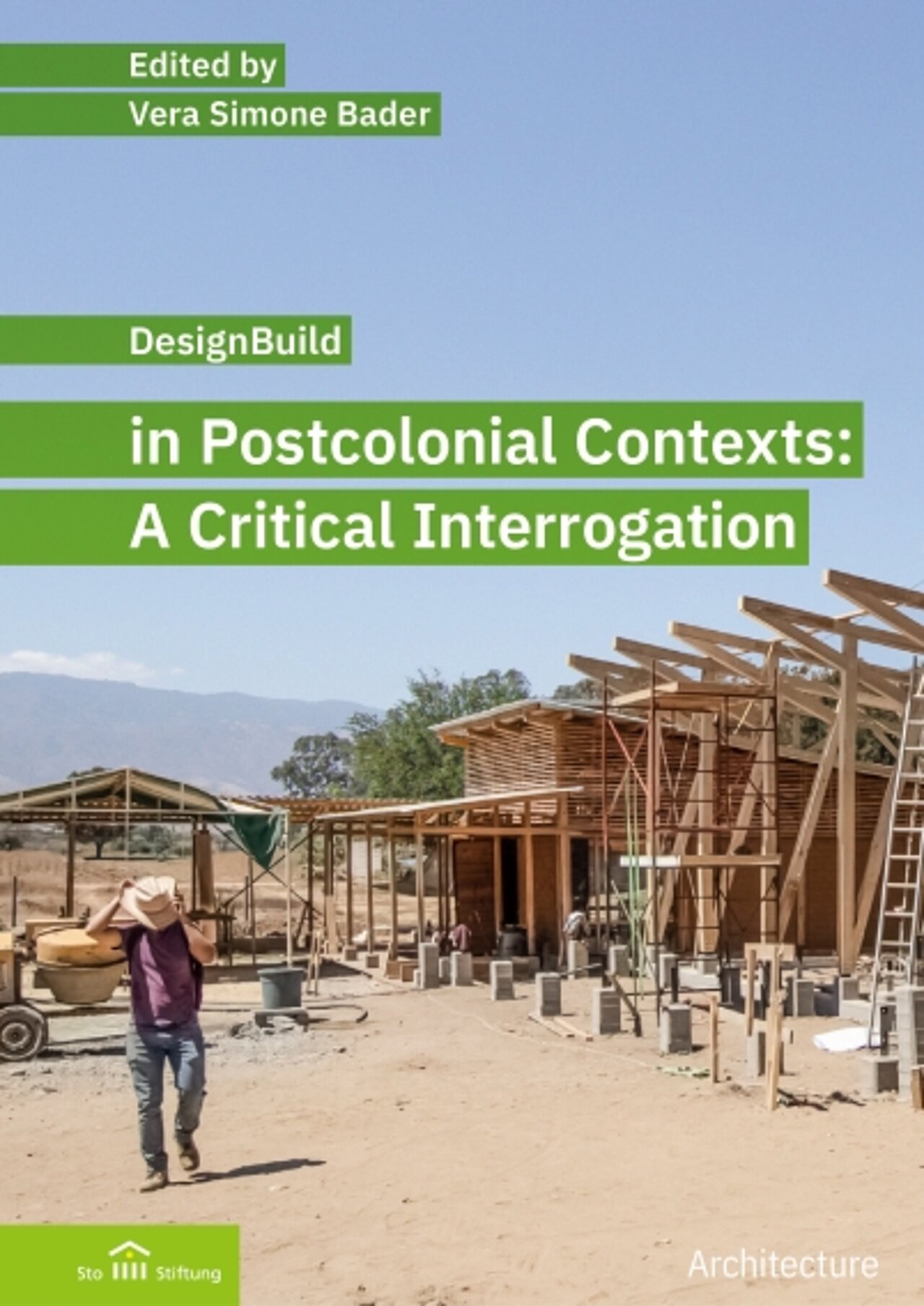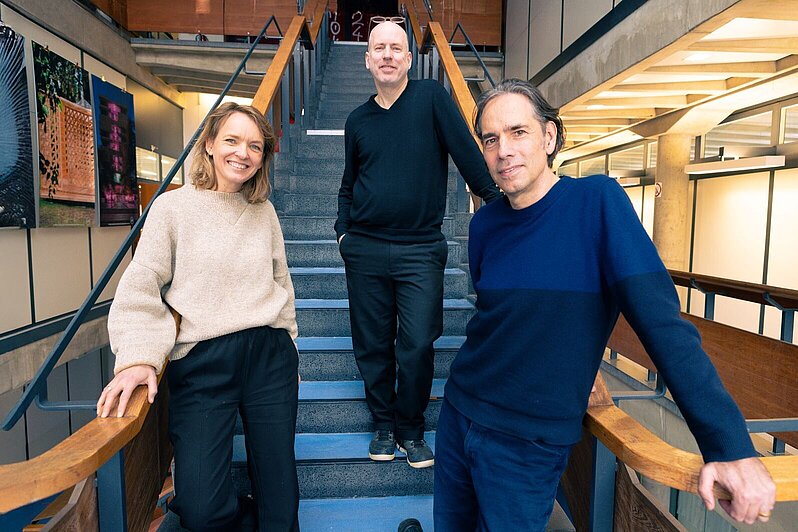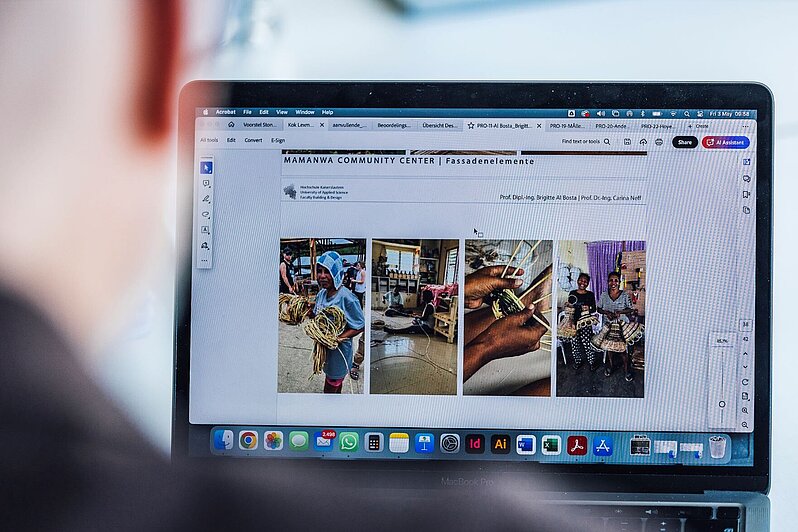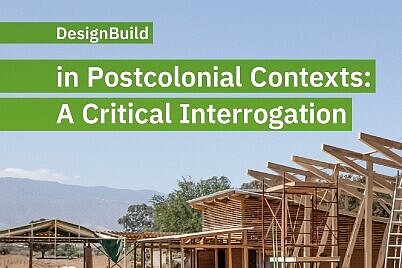DesignBuild REFLECT focuses on theory-building and cross-object issues - in other words, not individual projects, but overarching contexts. In this setting, the participants scrutinise established ‘DesignBuild’ teaching and learning methods, for example, or evaluate theoretical and practical specifications in terms of their achievement of objectives.
The results of this dialogue are then published in book form as part of our Sto Foundation book series.
Der Anmeldezeitraum für DesignBuild REFLECT 2026 ist abgeschlossen.
Wir sichten nun alle Anmeldungen und werden die Gewinnerinnen und Gewinner im neuen Jahr bekannt geben.
In the third volume of the DesignBuild book series, Marlene Franck and Conor Trawinski examine the influence of events on social interactions, processes and changes.
Moments of co-creative design and work play a central role as the starting point and engine of social change processes. Co-creation opens up great potential for social change. This often results in concrete products, e.g. in the form of physical artefacts or small-scale architecture, which are subsequently made available to local people as permanent services or assistance. However, this only accounts for their immediate value. They also have the potential to initiate, accelerate, stabilise and spread social interactions, processes and changes. In other words, these moments or small processes act as ‘social catalysers’. This manual explores the concept and the idea from a very practical perspective. It is intended to enable you as a reader and you as a project team to think and act in terms of such change accelerators so that you can plan and implement them yourselves.
The fourth publication in the “ARCHITECTURE - DesignBuild REFLECT”, “Achtung, ein Buch bedeutet Freiheit! ¡Atenti, un libro es libertad!” has been published and is now available free of charge.
Creating an awareness of the global knowledge available in spatial production and establishing a joint interdisciplinary and international experience and knowledge platform is one of the aims of the teaching and research approach at the Chair of Urban Planning and Design at the University of Stuttgart. To this end, formats need to be developed and experiences, culture and knowledge of the local need to be brought into an exchange at eye level on a global scale. We see this as an opportunity to anchor participation - and thus real creative co-production in thinking and building - as the basis of this dialog. Over the past six years, we have worked together with many colleagues, students, local stakeholder groups and residents on site in the “La Carcova” district in the Buenos Aires metropolitan area. The findings have resulted in an approach that consciously combines engagement with the specific location - “design.think” - and the co-production process - “design.dialogue” - with the built project - “design.build”.
The first in a series of four books, ‘DesignBuild_joint perspectives’ has now been published and is available free of charge. In this book, the authors discuss a joint DesignBuild hypothesis based on the field of tension between social transformation, architectural education and production.
At the interface between academic and non-academic environments, DesignBuild projects combine very different perspectives: They combine ivory tower with construction site, CAD drawing programme with circular saw, students with non-university collaboration partners. They operate in the field of tension between practice, research and teaching. Against this background, the publication project DesignBuild_joint perspectives focuses on a collective reflection on DesignBuild as a method in architectural education by two of the central actors: teachers and students.
The second book, ‘DesignBuild in Postcolonial Contexts: A Critical Interrogation’, has been published and is now available free of charge.
In this book, nine authors look at the DesignBuild learning method in a postcolonial context. Using concrete examples, the action-orientated approach is critically questioned and evaluated. One focus is on the international assignments of European and US students who actively apply their newly acquired knowledge in cultures foreign to them. However, projects by students from Latin America, Asia and Africa who use this method as a field of experimentation to question normative rules that are often still shaped by colonisation today are also documented and analysed.
News about DesignBuild REFLECT
Sto-Stiftung gibt Projekte des diesjährigen DesignBuild-Wettbewerbs bekannt
Angehende Architektinnen und Architekten können sich beim DesignBuild-Wettbewerb erproben und rund um den Globus Erfahrungen sammeln. Die Sto-Stiftung prämierte in diesem Jahr die Rekordzahl von elf vielversprechenden Projekten.
Startschuss für die nächste Runde des DesignBuild-Wettbewerbs der Sto-Stiftung
Der renommierte DesignBuild-Wettbewerb der Sto-Stiftung nimmt in der internationalen Architekturszene einen festen Platz ein. Er bietet Studierenden eine Gelegenheit, ihr theoretisches Wissen in die Praxis umzusetzen und innovative, nachhaltige Bauprojekte zu realisieren. Die Bewerbungsfrist beginnt Mitte Oktober und…
Neues Buch der Sto-Stiftung: „DesignBuild in Postcolonial Contexts. A Critical Interrogation”
Im zweiten Band der DesignBuild-Buchreihe betrachten neun Autorinnen und Autoren diese Lernmethode im postkolonialen Kontext. Sie untersuchen anhand konkreter Beispiele, ob die Praxis zielführend ist und welche Auswirkungen die ehemalige Kolonisierung noch heute auf normative Regeln hat.


